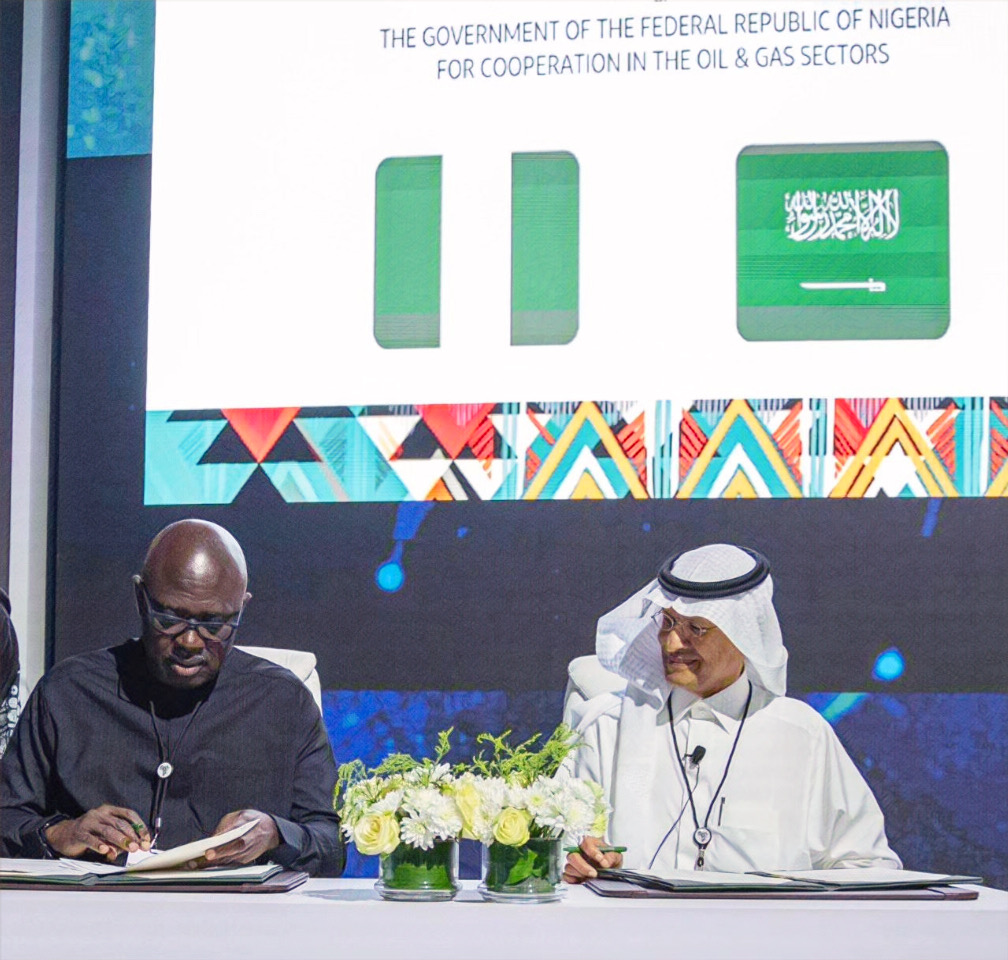Nigeria has signed a memorandum of understanding (MoU) with Saudi Arabia to boost cooperation in the oil and gas sector. The MoU was signed at the Saudi-Arab-African Economic Conference in Riyadh, which aimed to strengthen trade and investment ties between the kingdom and the continent.
The MoU covers specific areas of collaboration within the oil and gas industry, such as exploration, production, refining, and petrochemicals. The MoU also promotes technology transfer, investment inflow, and strategic partnership between the two countries.
The Nigerian Minister of State for Petroleum Resources, Sen. Heineken Lokpobiri, announced the MoU on his Twitter account on Thursday night. He said that the MoU was based on equality and mutual benefits and would pave the way for sustainable growth and prosperity in Nigeria’s energy sector.
Lokpobiri also met with the Saudi Energy Minister, Prince Abdulaziz bin Salman Al Saud, who is the chairman of OPEC’s Joint Ministerial Monitoring Committee (JMMC). They discussed the oil production quotas of both countries and the outlook for the global oil market.
Lokpobiri expressed satisfaction with the kingdom’s commitment to mutual energy objectives and stressed the importance of working closely with OPEC partners to ensure market stability and balance.
The MoU between Nigeria and Saudi Arabia is part of a broader effort by the kingdom to expand its cooperation and investment in Africa’s energy sector. Saudi Arabia is the world’s largest oil exporter and a leading producer of natural gas, while Africa is home to some of the world’s most promising oil and gas reserves.
According to the International Energy Agency, Africa’s oil production is expected to grow by 1.2 million barrels per day by 2026, while its gas production is projected to increase by 55% by 2040. However, Africa also faces many challenges, including a lack of infrastructure, security issues, and environmental concerns.
Saudi Arabia has pledged to support Africa’s energy development by providing financial and technical assistance and building the continent’s refineries, power plants, and renewable energy projects. Saudi Arabia has also signed initial agreements with several African countries, such as Ethiopia, Senegal, Chad, and Nigeria, to explore opportunities for energy collaboration.
The MoU between Nigeria and Saudi Arabia is a positive sign for the future of both countries’ oil and gas industries. It also shows the potential for Africa to benefit from the expertise and resources of Saudi Arabia and to play a more active role in the global energy transition.



